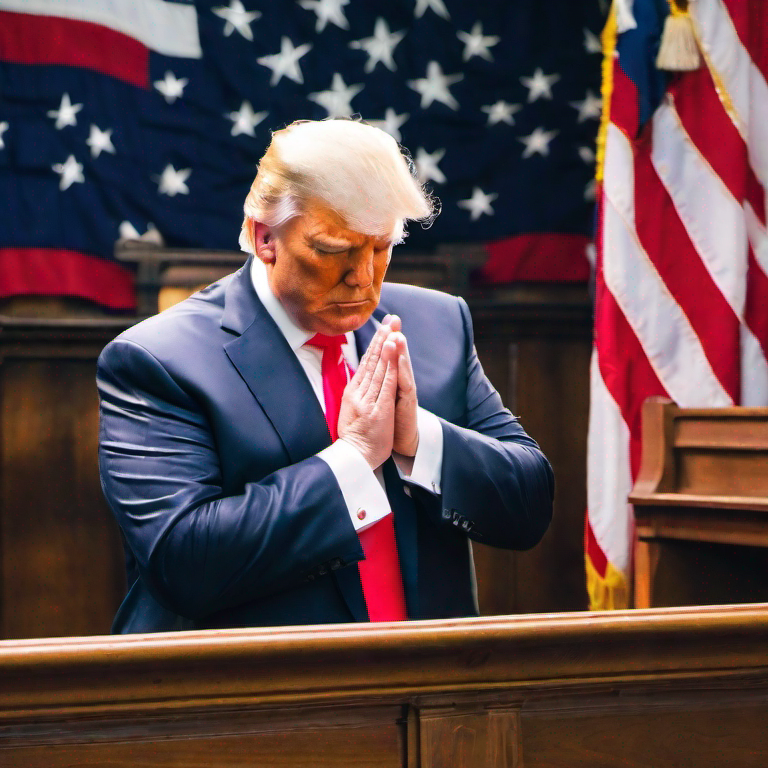Picture the scene: It is a sweltering summer day in Washington D.C., and the streets are adorned with stars and stripes in anticipation of Independence Day celebrations. As the nation basks in the glow of fireworks and patriotic fervor, have you ever wondered about the religious beliefs that guided America’s past leaders? The topic of US presidents and their faith is a tapestry woven through the annals of history, revealing a diverse range of personal beliefs. In this article, we delve into this subject, uncovering the faiths that shaped America’s presidents.
The Religious Woven Beginnings
From George Washington to Abraham Lincoln, the founding fathers and early presidents of the United States were predominantly influenced by Protestant Christianity. They embraced religious tolerance as a fundamental tenet of the nation, with many ascribing to Deism, a belief in a higher power detached from active involvement in daily affairs.
The Tumultuous Journey of Thomas Jefferson
Thomas Jefferson, the prominent author of the Declaration of Independence, was a complex figure when it came to faith. He advocated for the separation of church and state, yet his personal beliefs leaned towards Unitarianism, a liberal Christian theology. His biblical teachings gave birth to the Jefferson Bible, where he curated and omitted specific passages to focus solely on the moral teachings of Jesus.
Unwavering Faith in Trying Times
Throughout American history, presidents have turned to faith during times of crisis. For instance, Abraham Lincoln, hailed as one of America’s greatest leaders, wrestled with spirituality during the Civil War. While he did not belong to any specific denomination, Lincoln firmly believed in a divine presence, often referencing scripture and invoking God’s guidance in his speeches and letters.
The Catholic Barrier Broken
In 1960, John F. Kennedy shattered religious barriers by becoming the first and, to this day, the only Catholic president in US history. This milestone signifies the progress made towards religious inclusivity and acceptance in American politics.
The Diverse Faiths of Recent Presidents
In more recent times, US presidents have come from a variety of religious backgrounds. Presidents Jimmy Carter and Bill Clinton identified as devout Southern Baptists, balancing their faith with their political responsibilities. Meanwhile, Barack Obama emerged as the first African-American president, openly practicing Christianity within the United Church of Christ.
Donald Trump
Before being elected president, Donald Trump did not frequently attend church services. For a certain period of time, he frequented Norman Vincent Peale’s church, and additionally, he participated in Episcopal churches during various Christmas and Easter ceremonies. In the year 2016, a prominent evangelical supporter characterized him as a new believer in the Christian faith, often referred to as a “baby Christian.”
After relocating to the White House, his visits to diverse churches, mostly evangelical and Pentecostal, have been frequent. During these visits, he has engaged with several ministers, received prayers, and sought counsel from spiritual advisors such as White-Cain, a renowned Florida televangelist known for her association with the prosperity gospel. White-Cain served as the Trump administration’s faith outreach coordinator starting last year. Notably, the City of Destiny church in Florida, founded by White-Cain, follows a nondenominational approach.
According to a poll conducted by the nonpartisan Public Religion Research Institute, the majority of Americans do not perceive Trump as having firm religious convictions, with approximately 40 percent suggesting that the president employs religion primarily for political reasons. Conversely, among white evangelicals who align with the Republican party, a significant majority of 59 percent hold the belief that Trump possesses strong religious beliefs.
Parting words
As the foundations of the United States were laid, religion played a significant role in shaping the beliefs and values of the nation’s leaders. From the predominantly Protestant-based faith of the founding fathers to the diverse religious experiences of recent presidents, faith continues to impact the decisions and perspectives of those who hold the highest office. Remaining true to the principles of religious freedom and tolerance, the faiths of US presidents reflect the kaleidoscope of religious diversity that defines the American story.
